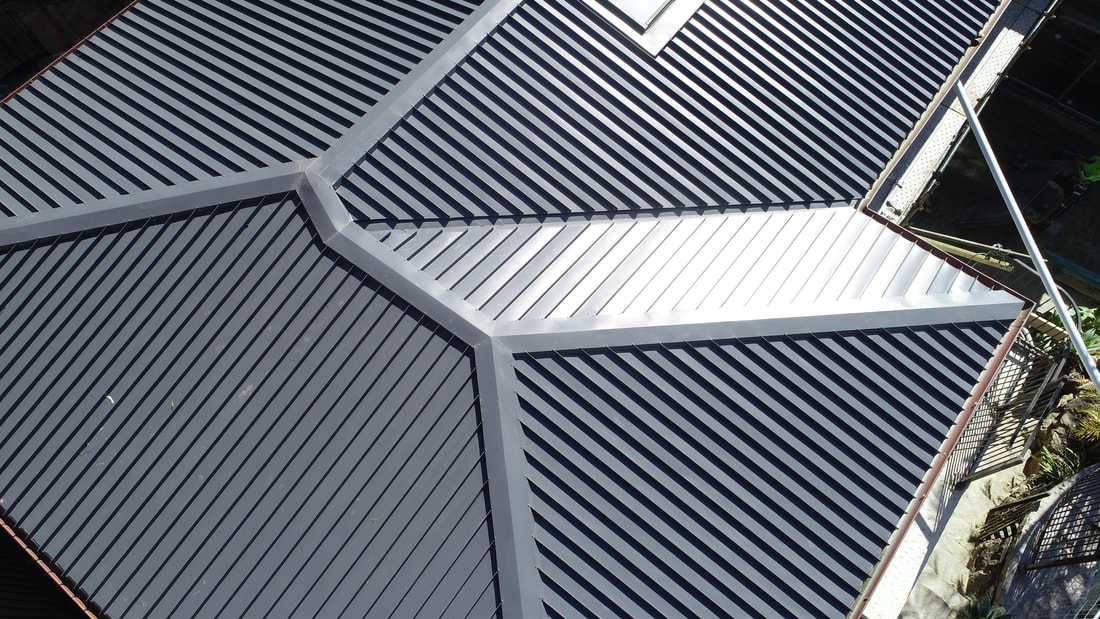|
There a few things you need to know about how temperature can affect your roof, and the ways you can prevent it from causing further damage to not only itself but to other elements of your home and/or property.
First things first, how are high temperatures effecting your roof and is your roof compensating? One thing that most people will know is that heat causes materials to expand. This means that during high temperature months your roof will be expanding on the hottest days, it’s not usually noticeable but it’s enough to have an effect on the roof’s surface. If your rooftop was not properly installed with the necessary materials, it will not be able to endure this expansion force. This can lead to many damaging issues to not only your roof but rooftop components, systems and the structure of your building. A very important material for your roof is an expansion joint. “An expansion joint or movement joint is an assembly designed to hold parts together while safely absorbing temperature-induced expansion and contraction of building materials, and vibration, or to allow movement due to ground settlement or seismic activity.”[1] This means that when your home or property was being built, it was built with the idea that it’ll need to compensate for when it expands and constricts with temperatures. Without this, your building structure is not safe, and is literally opening itself up to leaks and other damages. What is something to consider when upgrading or replacing your roof? When picking a colour for a metal roof, white and lighter shades will assist in reflecting sunlight and avoid your roof from attracting and absorbing an abundance of heat. Black and similar shades of roofs are expected to be at least 10 degrees hotter than other roofs. It’s important to remember the large volume of thermal energy that your rooftop will absorb during the hottest days. The heat will bleed into your home environment and make your air conditioning system work extra hard. This inevitably effects your energy costs, you are more than likely to spend more money on air conditioning costs, and energy costs to cool the interior of your home due to the fact that your roof is absorbing more heat and creating a hotter environment within your home or property. Also, for anyone without air-conditioning these homes will be more uncomfortable that it already is on an Australian hot summer’s day. What particular Sydney climates actually cause damages to your roof system? There are particular months that on average are hotter or colder than others, and ones to be mindful of once the season is over. With an average high-temperature of 25.9°C and an average low-temperature of 18.7°C, January is the warmest month in Sydney, Australia. [2] The coldest month in Sydney is July, with an average high-temperature of 16.3°C and an average low-temperature of 8.1°C. [2] However, it is when there are extreme fluctuations in temperature that your roof endures the worst effects of expansion and contraction. This is described as thermal shock, when air temperature varies greatly from day to night within a single day. [3] This also occurs when living in an area that has hot summers and cold winters, this is one of the main causes for failing details such as weakened nails, and cracked flashings. As most of us are well aware, Australia is known for its storm season, and earlier this year in Sydney we experienced 30-year record breaking storms. This is one of the many reasons why a metal roof system is the better choice, as they are more endurable against moisture damages and leaks that typically come with storms and large amounts of rainfalls. What do we know and what can we do to help?
Now that you have this information about how temperature can damage your roof, the best way to prepare for these situations or to find out if your roof has experienced these damages is to book an inspection through Ideal after the summer and winter seasons have passed so we can tell how well your roof has recovered from these effects. If you have further questions about how your roof may be affected, give us a call. Our team will provide you with the answers for you to make the right decision. Call us on 1300 ASSET1 now! References
1 Comment
23/12/2021 09:22:03 pm
Extreme weather can damages your roof especially hail or extreme hot weather. You can call roofers to help you.
Reply
Leave a Reply. |
Categories
All
|


 RSS Feed
RSS Feed





